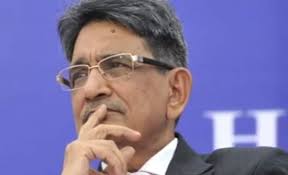New Delhi, Aug 12: It was an anguished cry by Chief Justice of India RM Lodha against "attempts" to bring the judiciary into disrepute. "For God's sake, do not shake the people's confidence in the judiciary. If there is a concerted campaign to bring judiciary to disrepute and defame it, then it is a big disservice to the nation," he said in court on Monday.
Justice Lodha also reacted sharply to the demand to junk the "failed" system of judges appointing judges, or the collegium system. "Everyone says collegium system has failed. I was among the first batch of judges selected under the collegium system. Justice RF Nariman is the last batch to be selected through the collegium system. If the system has failed, then the products have also failed," he said.
Hearing a PIL requesting the SC to "unlock the secrets of judges' appointment process and put each of its future recommendations on the Supreme Court's website", a bench of Justice Lodha, Justice Kurian Joseph and Justice Nariman said judges were not perfect as they, like all others, came from the same imperfect society. The CJI said: "No one is perfect. The society is not perfect. And we came from the same society. We too are not perfect."
The CJI's outburst followed former Supreme Court judge Markandey Katju writing a second blog highlighting instances of judicial corruption and alleged compromises with it by the apex court. It also came in the wake of the Centre bringing a bill to recast the process of judicial appointments by doing away with the collegium system.
Referring to the allegations of instances of corruption in the higher judiciary and the perceived failure of the collegium system to detect these "black sheep" and prevent them from gaining entry into the upper echelons of judiciary, the CJI said: "We are most concerned about the image and integrity of the system. But we too have our limitations (in verifying antecedents of the people)."
Justice Katju's disclosures of corruption in high courts and the Supreme Court's unenergetic efforts to deal with it have triggered a countrywide debate. While the judiciary feels this could damage its reputation, some former judges and senior legal officers have come to his support and said requisite reforms will only enhance the judiciary's reputation.
The PIL to whose context Justice Lodha's remarks were made referred to a series of newspaper reports about the collegium reiterating its recommendation to appoint Karnataka high court judge KL Manjunath as chief justice of Punjab and Haryana high court after the Union government sent the name back for the collegium's reconsideration.
"There is a misleading campaign going across to defame the judiciary and repeated attempts have been made to spread incorrect information," said Justice Lodha. "Who told you that his (Manjunath's) name has been recommended for elevation? Because I am the Chief Justice and I head the collegium I am sure and I don't know whether there is any other collegium."
The CJI said, "Merely because repeated attempts are being made to spread a falsehood, a chorus gets started against persons against whom allegations are being made. We are more concerned about the reputation of the judiciary than anyone else. Yes, we do have our limitations. But, that does not mean falsehoods will carry on."
When the petitioner said every newspaper reported it and the common man had a right to know who was getting selected as judge, the bench said: "We have not made any recommendation. Do you want us to dispense justice or respond to every newspaper article that gets published?" The bench dismissed the PIL saying the petitioner had got his facts wrong.
After the collegium recommended Justice Manjunath's name to the government for appointment as chief justice of Punjab and Haryana high court, a series of allegations casting aspersions on his integrity reached the government.
Keeping in view the seriousness of the allegations, the Centre returned Justice Manjunath's name to the collegium along with the allegations for reconsideration in last week of June. The collegium has since then kept the matter under consideration and is yet to take a decision.
The collegium system has operated since 1998 after the Supreme Court in two judgments, one in 1993 and the other in 1998, wrested from the executive the prerogative to select persons for recommending to the President their appointment as judges of the high courts and the Supreme Court.





Comments
Add new comment